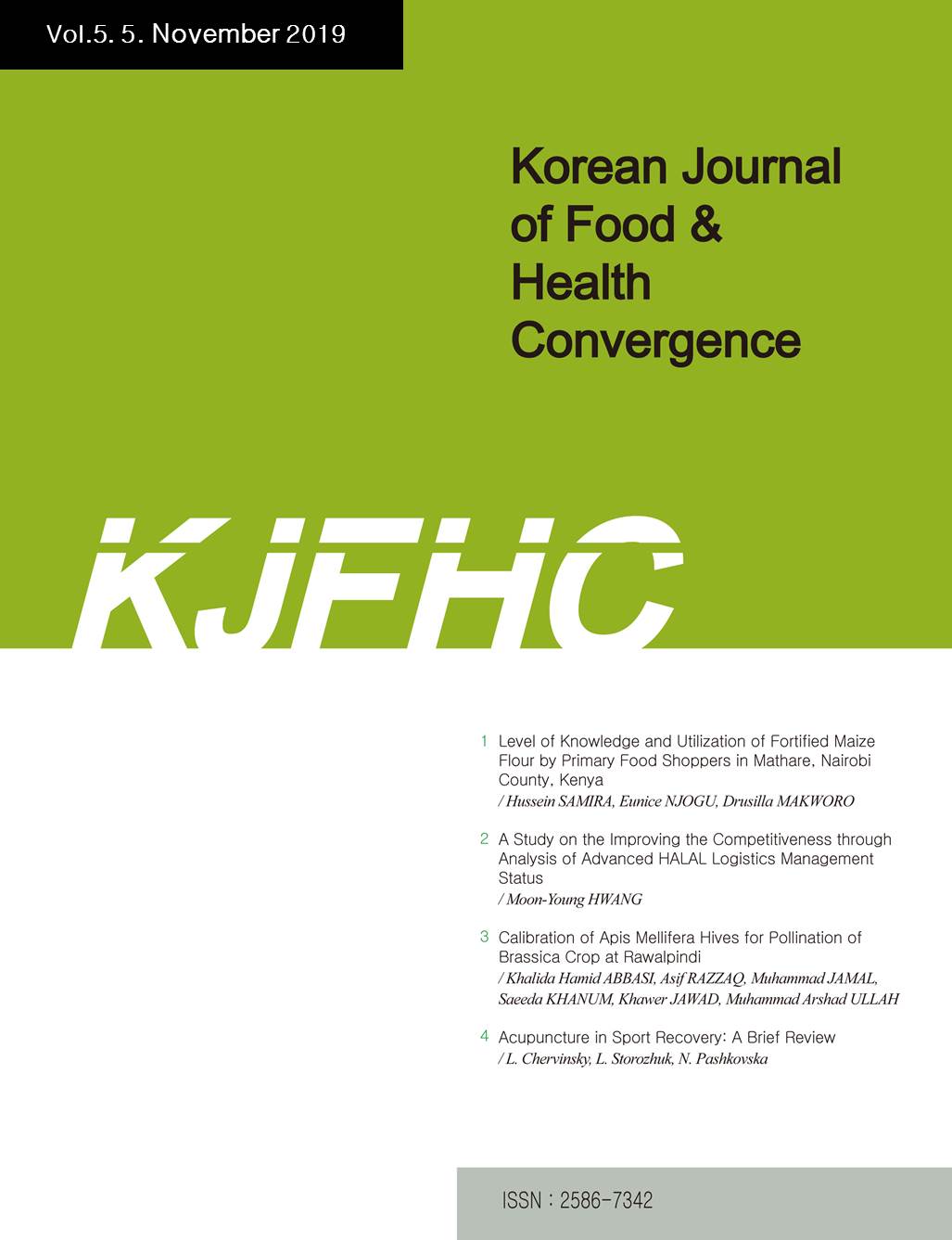- Log In/Sign Up
- E-ISSN2586-7342
- KCI
 E-ISSN : 2586-7342
E-ISSN : 2586-7342
Oyekunle, D.T.
Emetere, M.E.
Olanipekun, O.O.
Abstract
Extraction of oil from Moringa oleifera seed using Response Surface Methodology (RSM) was investigated. Effects of three factors namely: sample mass, particle size and extraction time on the response, Moringa oleifera a volume extracted, were determined. The Box-Behnken design of RSM was employed which resulted in 15 experimental runs. Extraction was carried out in a 250 ml Soxhlet extractor with Hexane and Ethanol as solvent. The Moringa oleifera seed powder was packed inside a muslin cloth placed in a thimble of the Soxhlet extractor. The extraction was carried out at 60℃ using thermostatic heating mantle. The solvent in the extracted oil was evaporated and the resulting oil further dried to constant weight in the oven. This study demonstrates that Moringa oleifera oil can be extracted from its seed using ethanol and acetone as extraction solvent. The optimum process variables for both solvent (ethanol and acetone) was determined at sample weight of 40 g, particle size of 325 ㎛ and extraction time of 8 hours. It can be deduced that using acetone as solvent produces a higher yield of oil at the same optimum variable conditions compared to when ethanol was used.
- keywords
- Moringa oleifera, RSM, Design of Experiment, Oil yield, Solvent, Soxhlet extraction
- Downloaded
- Viewed
- 0KCI Citations
- 0WOS Citations
